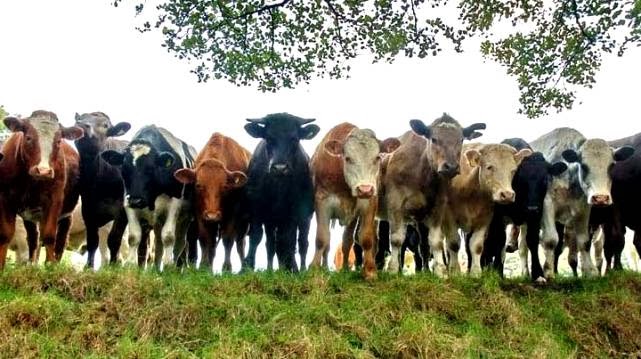CAST to Release Comprehensive Paper on FIFRA and ESA at the CropLife & RISE Regulatory Conference
Dr. Candace Croney (Purdue University), who was a co-chair on CAST’s Scientific, Ethical, and Economic Aspects of Farm Animal Welfare report, has written a new article:
At a point in time where a global pandemic is threatening human health and an extraordinary public awakening about systemic racism is fueling societal unrest in the U.S. and across the world, it feels a little tone deaf to be discussing animal welfare. Nonetheless, fueled in part by public discussions of the food chain breaking as COVID-19 infections caused temporary U.S. packing plant closures and necessitated mass euthanasia of farm animals in some instances, animal welfare remains a high priority for many people.
The ability to show compassion for animals even during times of crisis is a testament to human decency and a reflection of societal values that dictate that animals consistently deserve at least some level of moral consideration and protection, even when raised for food. Not surprisingly, animal welfare has become a core consideration in achieving sustainable, socially responsible food production. But as our collective thought process rightly evolves to be more inclusive of the interests of animals in the food chain, a disturbing pattern is emerging of overlooking vulnerable people within those systems who also deserve consideration.
Nowhere has this been more evident than in the current pandemic news coverage. A simple Google search using the terms, “animal welfare and COVID-19” returned a staggering 125 million results. Yet, substituting “farm worker” or “meatpacker” for “animals” returned a comparatively paltry number of results. If media coverage both shapes and reflects public interests, what do we make of this? Do we worry more about the animals that provide us food products than the workers who care for them and those whose labor ensures product availability?

A 2016 study by Carissa Morgan, Nicole Widmar and myself explored relationships between ethical consumption, lifestyle choices and social responsibility in the U.S. and suggests as much. When asked about the extent to which consumers avoided purchasing products from farm animals and workers in potentially adverse conditions, fewer people expressed concern for workers than for animals. Whether this was due to genuine disinterest in worker well-being or ignorance about their working conditions remains unclear. However, the parallels between these findings and the relative unconcern for farm workers impacted by COVID-19 reflected in news coverage are unsettling. It is troubling that even when the topic of employees at meatpacking plants did arise, discussions focused almost exclusively on the challenges their illness created for the food supply chain. The disinterest conveyed about the well-being of these employees, many of whom are vulnerable due to income and education level, race and citizenship status, coupled with lack of acknowledgement that they were literally putting their health on the line to help avoid food shortages does not reflect ethical consistency or inclusivity in social justice deliberations about our food systems. Rather, it is ironically, dehumanizing.
Similarly, people seemed blithely indifferent to the psychological trauma experienced by farmers and veterinarians forced to consider, or actually perform, mass euthanasia to avoid animal welfare problems created by the temporary packing plant closures. Understandably, people were horrified at the prospect of millions of animals being (to their reasoning) needlessly killed. And it should be noted that many farmers agilely found ways to avoid this outcome. However, the disregard for the mental health and well-being of those charged with these dreadful decisions, which actually embody an ethic of care for animals, is incomprehensible. To forego compassion for people in favor of callously using these tragic events to advance agendas against “big agriculture” is morally reprehensible, especially given the number of at-risk farmers and the enormous risk of depression and suicide faced by veterinarians, as outlined by Lai and colleagues (https://www.purdue.edu/vet/CAWS/files/documents/OneWelfare.2020-01).
The immorality of extending consideration exclusively to either animals or people is well established, as is the inextricably intertwined nature of animal and human welfare. Collectively, a better path forward to a socially just, sustainable food supply is to assume a one-welfare approach.
Accomplishing this requires introspection about harms farm animals experience, against which they require further protection. We must also recognize and rectify the harms done when we disregard the interests and experiences of disadvantaged, marginalized or “invisible” people connected to and impacted by agriculture.
To that end, the animal industries’ conspicuous silence on systemic racism should be re-evaluated. Although to date a few organizations have issued statements, the general message conveyed is “this is not our issue.” I would challenge that assumption. Although it can be incredibly uncomfortable, polarizing, and potentially divisive to speak on systemic racism, to not make any statement is in itself a statement, and one that reflects poorly on agricultural brands and businesses whose social license to operate is premised on serving local and global communities.
Further, silence on such a significant social justice concern serves only to widen existing credibility gaps on animal welfare. For if animal agriculture cannot project care about human life, how can the respective industries be trusted to protect animals that have no agency, and thus are even more jeopardized?
Engaging in the performative activism of superficial memes and vague statements that are currently plaguing social media is unnecessary. However, communicating about relevant shared values, internal discourse, and meaningful action (if that indeed is happening) may go a long way toward demonstrating ethics and the commitment to one welfare that are greatly needed in these troubling times.
By Dr. Candace Croney.
This article originally published in Feedstuffs and is reprinted with permission.
Your donation to CAST helps support the CAST mission of communicating science to meet the challenge of producing enough food, fiber and fuel for a growing population. Every gift, no matter the size, is appreciated.